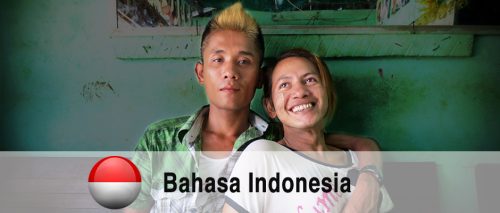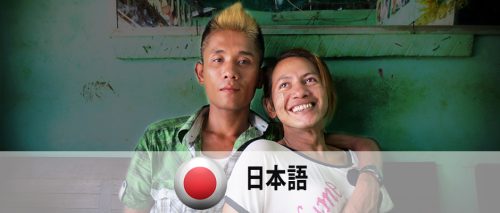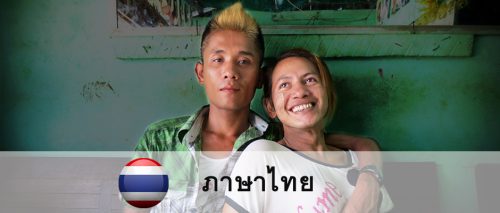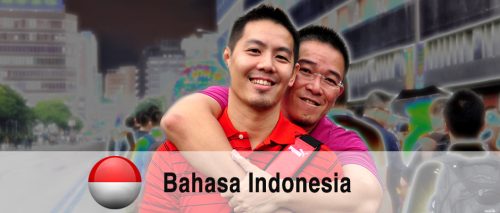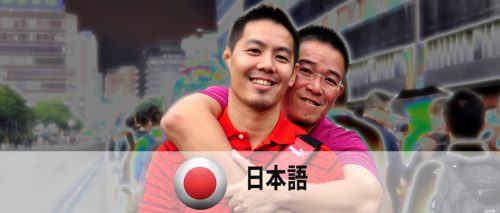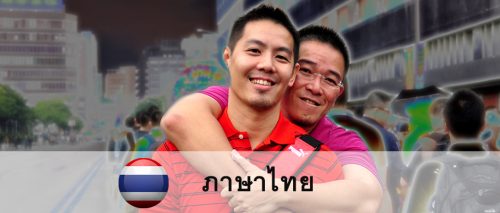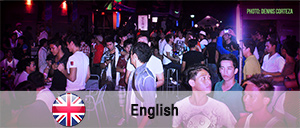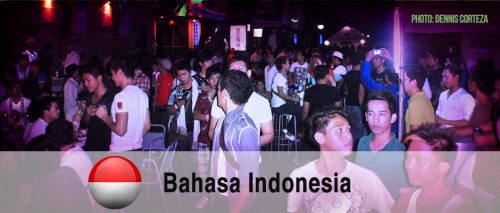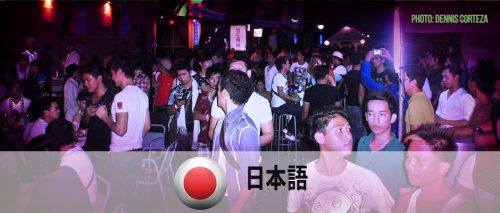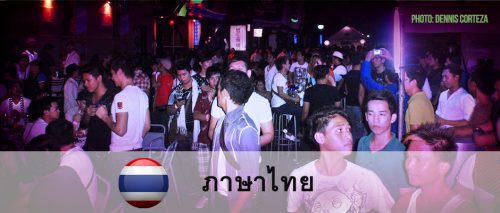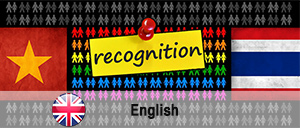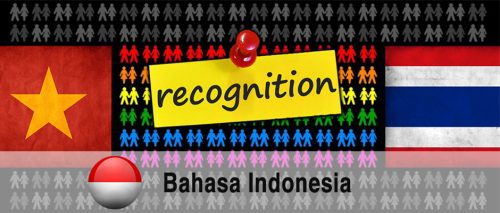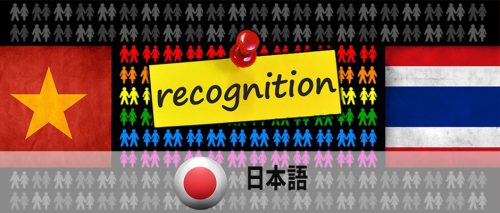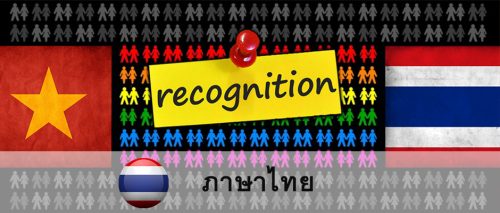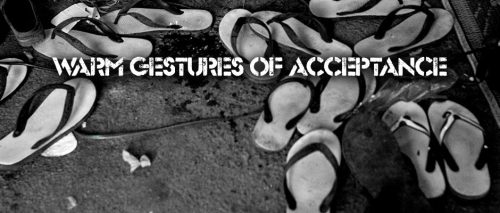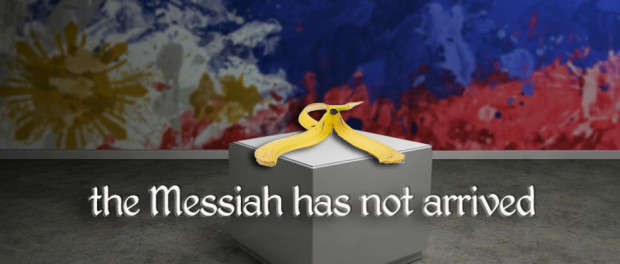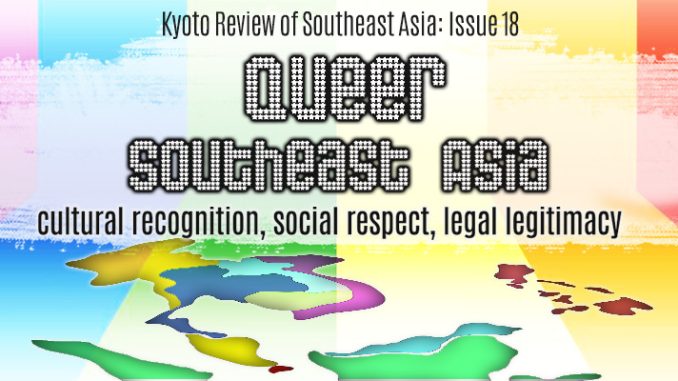
Over the past few decades, diverse new cultures and communities based on same-sex preference and transgender identity have become increasingly prominent in all the countries of Southeast Asia.
Across the cultural, ethnic, and religious diversity of region, and despite the distinctive colonial and semicolonial political histories of the modern states of Southeast Asia (see Jackson 2010), new lesbian, gay, bisexual and transgender (LGBT) identities have emerged in the context of dramatic transformations in gender and sexual cultures. In this issue of Kyoto Review, “queer” denotes sexual and gender practices, identities, cultures, and communities that challenge normative masculine and feminine gender roles and/or transgress the borders of heterosexuality. “Queer” here also labels a critical theoretical perspective that understands all genderings and sexualities as emerging from contingent historical and cultural conditions.
Drawing creatively on indigenous notions and adaptations of Western terminologies to form their own discourses of being and identity (see Blackwood 2011, Boellstorff 2005, Garcia 2009, Jackson 2000, 2011, Sinnott 2004, Yue & Zubillaga-Pow 2012), these new cultures nonetheless face obstacles and confront barriers to achieving cultural recognition, social respect, and even legal legitimacy. The five articles in this issue provide summaries of key issues for queer communities across mainland and island Southeast Asia.
Issue 18 of Kyoto Review of Southeast Asia
Several articles focus on the legal status of same-sex and transgender persons and their intimate relationships. Lynette Chua describes the paradox of the Singapore government’s preparedness to now recognise the contributions of gay men and lesbians to the country yet its intransigent refusal to abolish an anti-sodomy law inherited from the former colonial power of Great Britain, despite and in the face of a stridently anti-colonial nationalism in other dimensions of official discourse. Ferdiansyah Thajib traces the disturbing rise of anti-queer rhetoric among a range of orthodox Islamic figures and organisations in Indonesia, in part fuelled by a perception of queer rights as a marker of Western cultural influences. He details the ways these discourses are impacting detrimentally on the legal status, personal security and quality of life of queer men and women in the country. Douglas Sanders presents a contrasting picture of the emerging opportunities for legal recognition of same-sex relationships in Vietnam and Thailand. In both countries loose alliances of queer community organisations, representatives of ministries and state agencies, as well as elected politicians have worked to draft laws that propose legal recognition of same-sex relationships, whether in the form of civil partnership or full marriage. While these draft bills have yet to be enacted and face procedural and other obstacles as their supporters negotiate each country’s shifting political situations, Sanders is nonetheless optimistic about the likelihood of their successful passage in the not too distant future.
Legal issues are far from the only barriers that queer Southeast Asians face in achieving full equality. David Gilbert contends that for transgenders in Myanmar legal issues are of relatively minor concern compared to the intensity of opposition and social exclusion they face from their own families. Gilbert argues that many, perhaps the majority, of transgenders in Myanmar are only able to live openly by leaving their birth families and establishing alternative forms of kinship relations with other similarly excluded transgenders. Gilbert sees the opening of the Burmese economy as providing transgenders with opportunities to build independent careers, or lines of work, in the beauty industry and other fields such as spirit mediumship.
Indeed, across the region there is an intimate relationship between the possibilities of achieving financial independence that are offered by capitalism and the ability to establish forms of queer sexual and gender autonomy outside the family (see Jackson 2009). However, queer communities’ reliance on market processes to escape the moral strictures and heterosexual normativity of the family is a double-edged sword. Ronald Baytan argues that the death of the once-vibrant gay precinct of Malate in Manila is in large measure attributable to new communications technologies and the rapidly changing work conditions of the gay men who are the major clients of gay venues in the city. While the market may provide opportunities for queer Southeast Asians to escape homophobic forms of legal and cultural oppression, the processes of “creative destruction” at the core of the modern technologies of capitalism mean that queer cultures may also be undermined by the very forces that enabled them to emerge in the first place.
Behind the apparent multiplicity of identity labels and the diversity of legal, religious, political, cultural, technological, and economic processes studied in the papers collected here lies all Southeast queer people’s common experience of struggling to establish a legally secure and culturally honoured place in the societies of the region. Queer Southeast Asia may not be united by any common identity of gender or sexuality. However, it is united by similar experiences of exclusion, marginalisation and even criminalisation as well as by a joint aspiration to resist and confront the many forms of stigmatisation and discrimination imposed upon them by dominant moral cultures and legal regimes.
Peter A Jackson
Guest Editor, Issue 18, Kyoto Review of Southeast Asia, September 2015
Department of Gender, Media and Cultural Studies
College of Asia and the Pacific, Australian National University
Main articles. All are available in four languages:
Book Reviews/Photo Essay
 Guillermo, Ramon. 2013. Ang Makina ni Mang Turing [Mr. Turing’s Machine] Guillermo, Ramon. 2013. Ang Makina ni Mang Turing [Mr. Turing’s Machine]Quezon City: University of the Philippines Press. Reviewed by Caroline Hau |
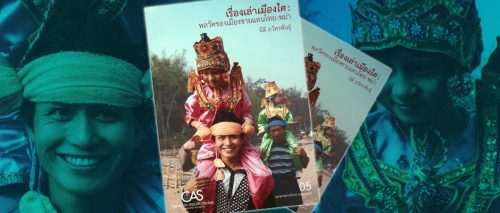 Niti Pawakapan. เรื่องเล่าเมืองไต: พลวัตของเมืองชายแดนไทย-พม่า Niti Pawakapan. เรื่องเล่าเมืองไต: พลวัตของเมืองชายแดนไทย-พม่า Rueng Lao Mueng Tai: Pholawat Khong Mueng Chai Dan Thai Phama (Story of Tai Town: Dynamics of the Town within Borderline between Thailand and Myanmar) Chiang Mai: Center for ASEAN Studies, 2015. Reviewed by Bank Ngamarunchot |
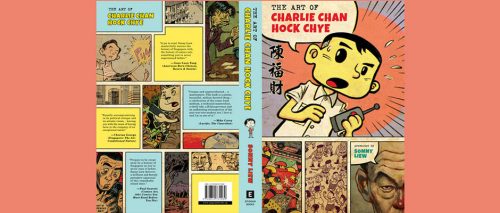 Liew, Sonny. The Art of Charlie Chan Hock Chye Liew, Sonny. The Art of Charlie Chan Hock ChyeSingapore: Epigram Books, 2015 Reviewed by Lim Cheng Tju |
|
|
Young Academic’s Voice
As a platform for young researchers to voice their opinions on all things Southeast Asia. For this month’s YAV, we present Carmina Yu Untalan (OSIPP, Osaka University), on “The Real Crisis of Philippine Democracy.”
For Past Young Academic’s Voice articles —
References
Blackwood, Evelyn. 2011. Falling Into the Lesbi World: Desire and Difference in Indonesia, Hong Kong: Hong Kong University Press.
Boellstorff, Tom. 2005. The Gay Archipelago: Sexuality and Nation in Indonesia. Princeton University Press.
Garcia, J. Neil C. 2009. Philippine Gay Culture: The Last Thirty Years, Binabae to Bakla, Silahis to MSM. Hong Kong: Hong Kong University Press.
Jackson, Peter A. 2000. “An Explosion of Thai identities: Global Queering and Re-imagining Queer Theory.” Culture, Health & Sexuality 2(4):405-424.
Jackson, Peter A. 2009. “Capitalism and Global Queering: National Markets, Parallels Among Sexual Cultures, and Multiple Queer Modernities”, GLQ, 15(3):357-395.
Jackson, Peter A. 2010. “The Ambiguities of Semicolonial Power in Thailand”, in The Ambiguous Allure of the West: Traces of the Colonial in Thailand, co-edited with Rachel Harrison, pp. 37-56, Hong Kong: Hong Kong University Press.
Jackson, Peter A. 2011. Queer Bangkok: 21st Century Markets, Media and Rights, Hong Kong: Hong Kong University Press.
Sinnott, Megan. 2004. Toms and Dees: Female Transgenderism and Same-sex Sexuality in Thailand, Honolulu: University of Hawaii Press.
Yue, Audrey & Jun Zubillaga-Pow. 2012. Queer Singapore: Illiberal Citizenship and Mediated Cultures, Hong Kong: Hong Kong University Press.


